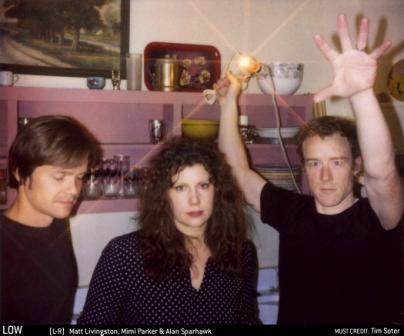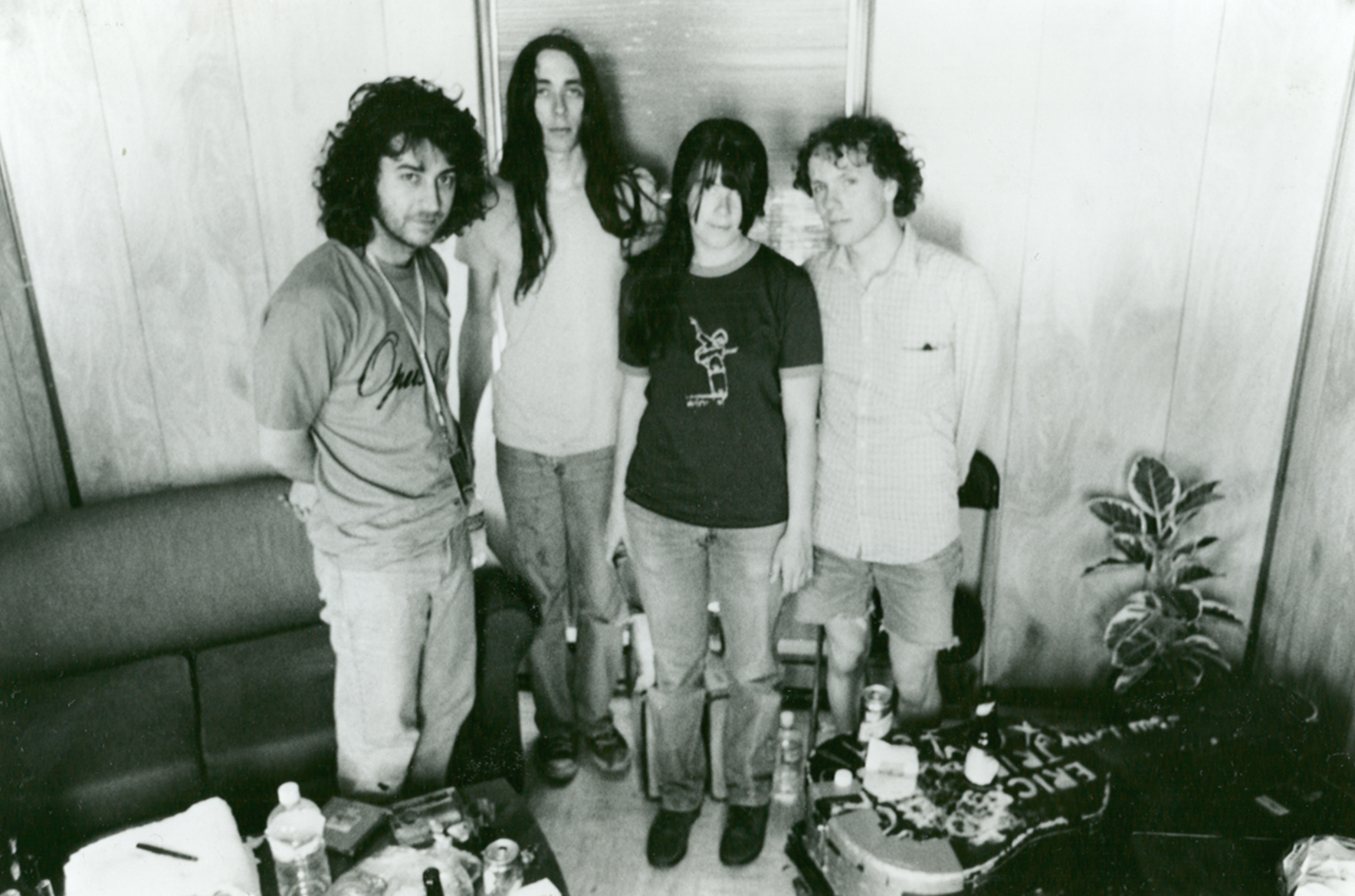As soon as those dandies Interpol phoned in their last chord, my group and I rushed the stage. Not that we got very far. We were at Coachella last month, enjoying the post-twilight desert breeze and the familiar festival scent of our closest 1,000 neighbors. As we shamelessly charged to get as close as possible to the stage where Björk would soon play her first U.S. show for the release of her sixth studio album, Volta, hundreds of others were pushing just as hard to get away from it. “Fucking Björk fans,” they cursed. And that is the essence of popular opinion on Björk Guðmundsdóttir, Iceland’s most famous musical export and one of pop music’s great chameleons.
The same scene is about to go down at Sasquatch, and with a backdrop as unbelievable as the Gorge, the devoted aren’t going to miss it. Luckily, the vantage points are much better. I could issue a warning about Volta as a whole—even with Timbaland in the studio, it’s unfortunately not as karazy as all that—but as veteran show-goers would expect, Björk will perform the most high-intensity pieces along with a batch of Greatest Hits. When even the slight hum of “Hyperballad”‘s opening note sets people off, there’s no way that track, or “Army of Me” or “Jóga,” will be left out. I’d been waiting more than a decade to hear any of these in person, which due to busy lives must be the case for some of you, too, so it was a bit surreal hearing the even-more-reverent Latinas next to me screaming, “I thought I could organize freedom/How Scandinavian of me!” (Though this would surely please Björk’s “one tribe” sensibilities.)
Impenetrably personal lyrics that you still want to sing along to; rough drum-and-bass beats that appeal to the music community at large (check out the Timbaland-stamped “Innocence”); an unrivaled charm that wins over those who bristle at eccentric singer-songwriters: Those attributes have popped up in Björk’s music over time, making the musically curious hang on to her records even when they don’t appeal at first listen. If respect—or “warmth,” as she’s fond of saying as a goodbye—doesn’t come instantly for a new Björk release, it’ll often grow. Like vocal forebear Meredith Monk, who participated in an eye-opening interview with Björk on Counterstream Radio in 2005, Björk’s elastic voice, her particular dialect and delivery, can make the same song sound remarkably different each time it’s performed. Which is why it’s worth your while not to head back to your campsite/car/bong too early; hearing it live might really change your mind.
Even hard-core fans can be put off from a release du jour until sufficient time passes for the new ideas and sounds to sink in. I shelved Vespertine for years for being “too boring,” until a viewing of the Live at Royal Opera House DVD opened up the album’s sonic world. Being able to see Matmos make static with contact microphones, or crunch rock salt under their feet for crispy beats, was as cool as watching harpist Zeena Parkins and Björk’s “choir from Greenland” in action. Volta‘s bizarre melting pot of collaborators—which extends from the Congolese percussion ensemble Konono Nº1 to lounge diva Antony Hegarty—sets things up similarly, although those two contributors are currently elsewhere. On the road with Björk is Lightning Bolt drummer Chris Corsano (whose slow-burning groove on her duet with Antony sparks into a brushfire), longtime producing partner Mark Bell, an Icelandic concert pianist, and a 10-piece, all-female brass ensemble. It’s a spectacle. And I’m not even mentioning her dress.
It’s not perfect, but Volta packs electrical wattage like nothing she’s done since 1995’s Post and the 2002 single “It’s in Our Hands.” In an interview excerpt on her home page, she says of the latter, “It was nice to do a full-blooded song after doing a whole album that didn’t have any blood in it, though that was the point with Vespertine, that it was see-through like a crystal. When we played it live, we were all looking forward to rocking out.” On Opera House, or if you were in the Seattle audience for her 2003 show at the Pier, you could see visible relief on the faces of everyone in the venue. I always got the feeling audiences must have left those shows refreshed and ready to go out dancing, to hit the clubs like the Björk of the ’90s would’ve done. For an artist who has so much to say, and of whom so much can be said, her ability to intuit what her fans might enjoy is uncanny. Is it a supernatural empathy or just savvy business sense? Björk has made some noises about exploring politics, religion, and gender on Volta, but she’s fundamentally acting as an MC, hyping up all listeners into a forward-marching frenzy. There is a political parallel between “It’s in Our Hands” and “Declare Independence,” which she chose as the finale at Coachella. But whereas the Vespertine castoff tenderly urged you to gather courage for the uncertain future, the new song is a rallying cry: “Raise your flag! Higher, higher!” Her intent with the album was “a sort of shaman, voodoo thing, to just liberate, to get rid of a lot of tension,” she told Pitchfork‘s Brandon Stosuy. While Björk may not have gotten her full freak on with Volta, you’ll get yours on at the show—I mean it.








